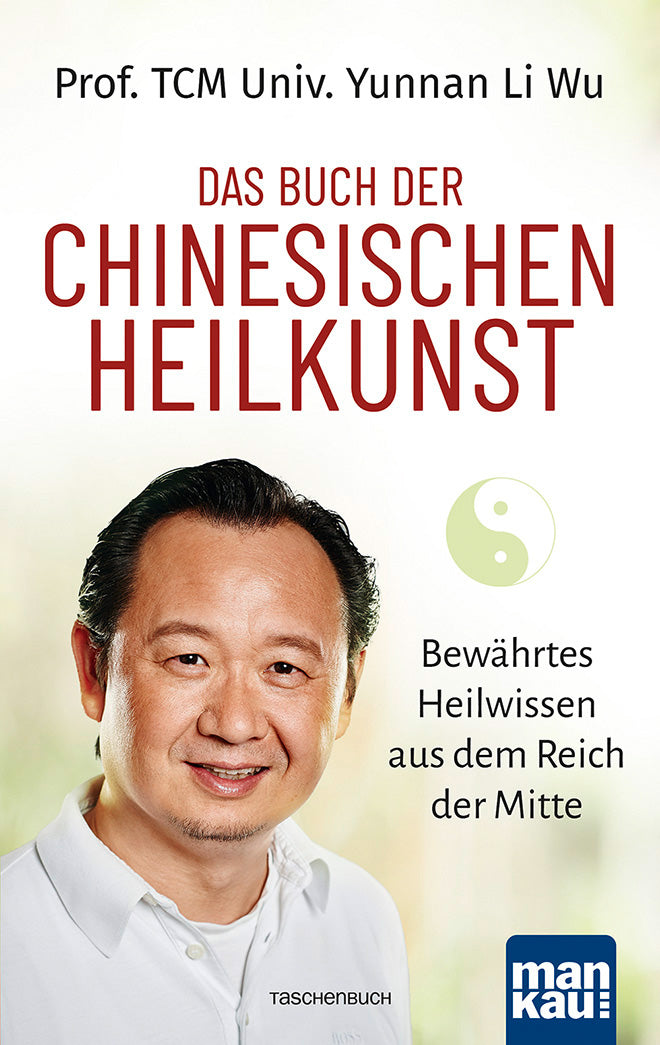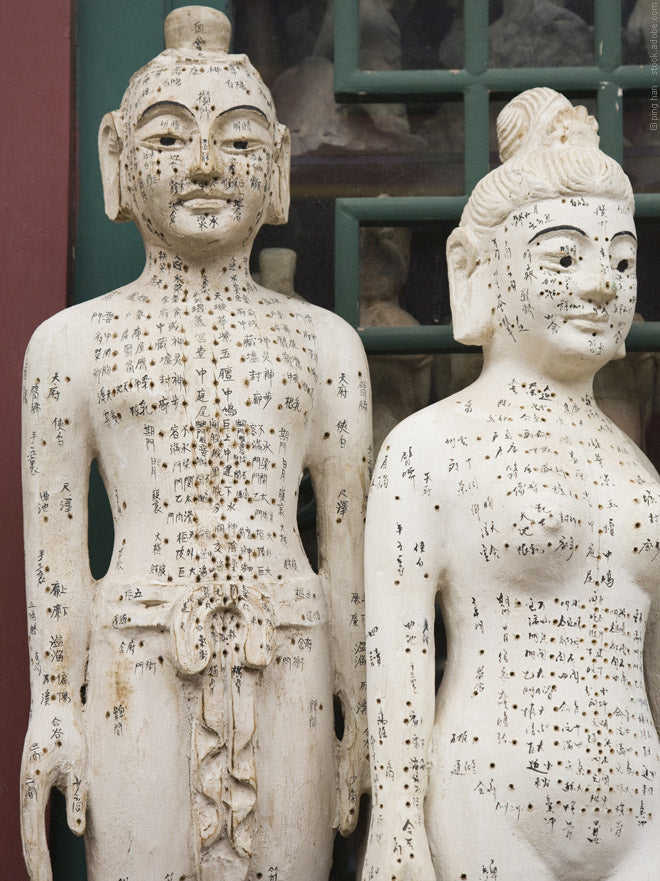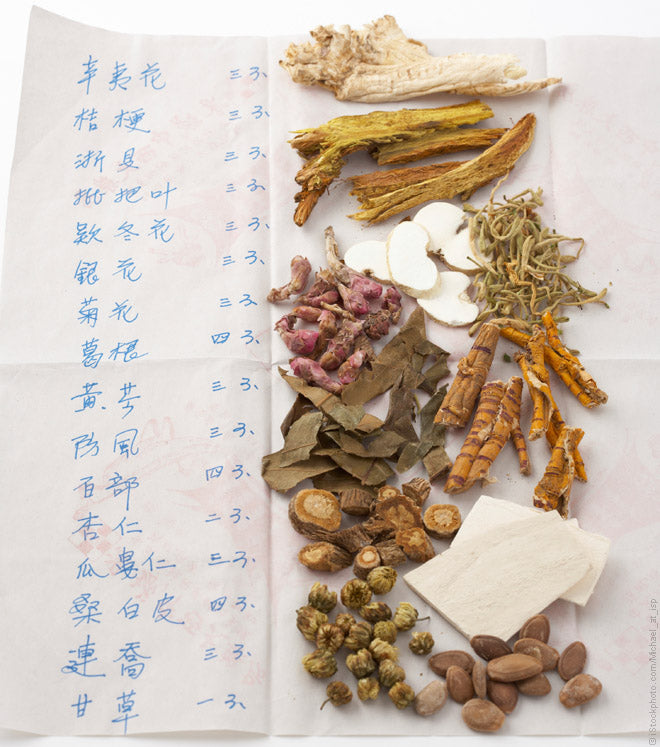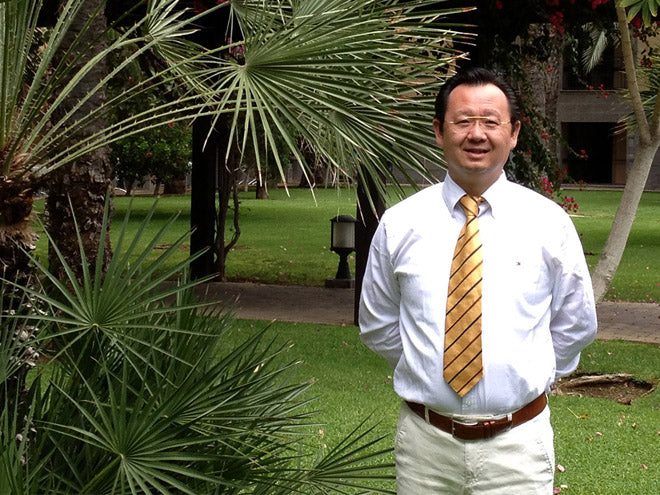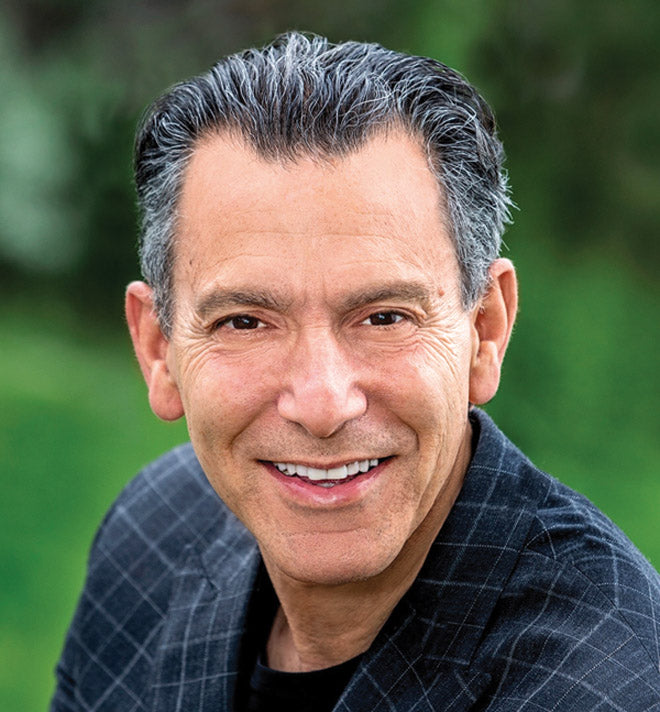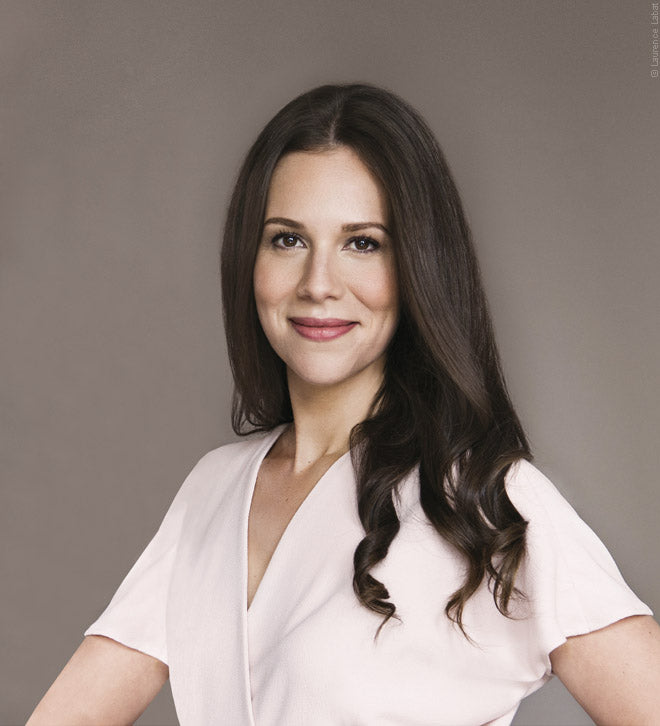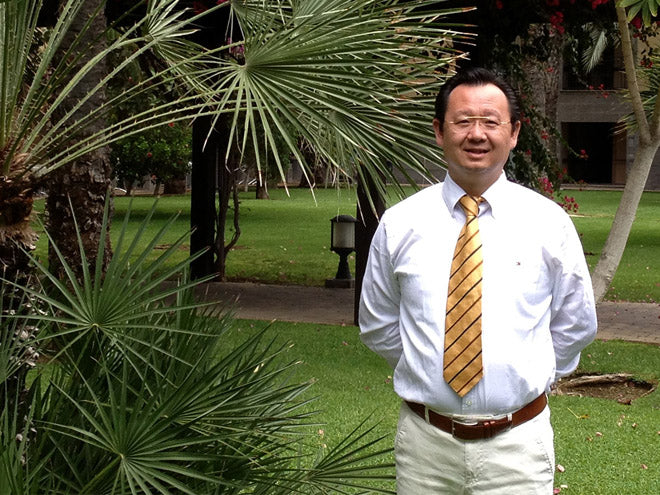
Interview with Prof. TCM Univ. Yunnan Li Wu: “Traditional Chinese Medicine brings Yin and Yang into balance”
Interview with Prof. TCM Univ. Yunnan Li Wu: “Traditional Chinese Medicine brings Yin and Yang into balance”
"Traditional Chinese Medicine (TCM) has a history that goes back thousands of years; its healing methods have been passed down from generation to generation and have therefore undergone millions of medical tests on patients. It balances yin and yang and improves the flow of life energy Qi, the human organs work together harmoniously again and the patient becomes healthy. Ultimately, TCM has healing methods for all illnesses." Prof. TCM Univ. Yunnan Li Wu , expert in traditional Chinese medicine and successful alternative practitioner with a large practice in Munich, explains the basic principles and advantages of the increasingly popular, proven healing art from the Middle Kingdom. His standard work "The Book of Chinese Healing Art" has now been published for the first time as a paperback.
In recent years, treatment methods from Traditional Chinese Medicine (TCM) have become increasingly popular. Why is that?
Prof. Li Wu: Traditional Chinese Medicine has a history that goes back over 4,000 years, hence the name. The effective therapy methods have been passed down from generation to generation and have therefore undergone millions of medical tests on patients. In recent years, people in Europe have developed a greater awareness of bringing the body into harmony with nature, which in turn means health. TCM imparts this knowledge. Acupuncture, acupressure, herbal medicine, Qi Gong, etc. offer successful therapy solutions for a wide range of illnesses.
The basic principle of TCM is the holistic view of people and the interpretation of all life from the polar opposites of Yin and Yang. How should we imagine this in more detail?
Prof. Li Wu: The interaction of the energies of Yin and Yang is the basis of Traditional Chinese Medicine. Yin means feminine, gentle, dark, permanent, while Yang is associated with masculine, strong, bright, spontaneous. Both are associated with the corresponding organs. TCM brings Yin and Yang into balance so that the human organs can work together harmoniously again and the patient regains his health.
You consider Chinese medicine to be an effective alternative and complement to so-called Western medicine. For which ailments does this particularly apply?
Prof. Li Wu: As an alternative or supplement to Western medicine, Chinese medicine is particularly effective against chronic pain, for example migraines, cervical and lumbar spine syndrome - i.e. pain in the cervical or lumbar spine -, arthrosis, rheumatism, etc. Ultimately, TCM has healing methods for all illnesses.
In Chinese medicine, the body is viewed as an energy system in which the flow of life energy (Qi) runs through the meridians. What negatively influences this energy flow and what treatment methods are available for its harmonization?
Prof. Li Wu: There are twelve meridians, or energy channels, in TCM. The flow of life energy through the meridians determines whether a person is healthy or sick. Unhealthy diet, lack of exercise and negative environmental influences can disrupt the flow of Qi. To harmonize the flow of Qi in the meridians, we use well-known treatment methods such as acupuncture, acupressure, cupping, moxibustion, Qi Gong, Tai Chi, herbal medicine and nutritional therapy based on the five elements.
Traditional Chinese Medicine has developed over thousands of years from observation of nature and the spiritual foundations of Taoism and Buddhism. Are there any current advances in medicine that incorporate TCM into their diagnostic and treatment system?
Prof. Li Wu: Traditional Chinese medicine has always been open to the methods of other medical disciplines and has incorporated new treatment and diagnostic procedures where necessary. This means that TCM is constantly evolving. Today, for example, we also use medical devices to determine exactly where the intervertebral disc is hurting. Conversely, TCM helps modern medicine with chronic pain, the elimination of toxins, allergies, etc.
What health risks are there when treating yourself with TCM? Can children also be treated with acupuncture, acupressure or moxibustion?
Prof. Li Wu: In order to use acupuncture, you need years of special medical training. Self-treatment can lead to serious health problems and unwanted complaints. Acupuncture influences the Qi, either positively or negatively if used incorrectly. Since Chinese medicine is primarily aimed at prevention, we recommend that interested parties take specialist courses to learn acupressure, Tuina massage, Tai Chi or Qi Gong. My book also contains numerous instructions for risk-free self-treatment of various everyday complaints using the healing methods mentioned above. These treatment tips can also be used on children without any problems; however, an experienced therapist can also treat children with acupuncture - there are special children's needles or the option of laser acupuncture - and moxibustion, depending on the condition.
Food plays a special role in TCM, as it not only serves as nutrition, but also as a means of maintaining health and healing. What characterizes a perfect meal and how can we ensure a balanced diet even today?
Prof. Li Wu: An old Chinese proverb says: "Food is the most important thing, medical therapy only plays a supplementary role." In TCM, food plays a crucial role in prevention, i.e. in health care. Therefore, an important principle for a balanced diet applies: five grain products come first: rice, wheat, millet, corn and spelt, which in turn are supported by fruit and vegetables. Meat and animal protein only play a supplementary role and should only be consumed in moderation. According to TCM, food is also assigned to the five elements: metal, earth, wood, fire and water. In effect, this means: as much grain, fruit and vegetables as possible. Eating according to the five elements is the simple basic rule for a healthy diet.
What exactly are the five elements and how do they fit into the world of modern man?
Prof. Li Wu: In the TCM image, every person carries the five elements within themselves, both physically and mentally. The five elements describe five organs in the body: metal for the lungs, wood for the liver, water for the kidneys, fire for the heart and earth for the stomach. When the harmony of the five elements is established, these five important organs also work harmoniously with one another. In the modern world, however, people are often burdened by various factors. Through appropriate nutrition, a positive attitude to life, physical exercise and a return to the basics of life, people can find their way back to balance and thus to health.
Book tip:
Prof. TCM Univ. Yunnan Li Wu: The Book of Chinese Medicine. Proven healing knowledge from the Middle Kingdom. Mankau Verlag 2019, 12.90 € (D) / 13.30 € (A), paperback, 12 x 19 cm, 246 pp., ISBN 978-3-86374-538-7.
Link recommendations:
More about the guide "The Book of Chinese Medicine"
To the reading sample in PDF format
More about the author Prof. TCM Univ. Yunnan Li Wu
To the reader forum with Li Wu
